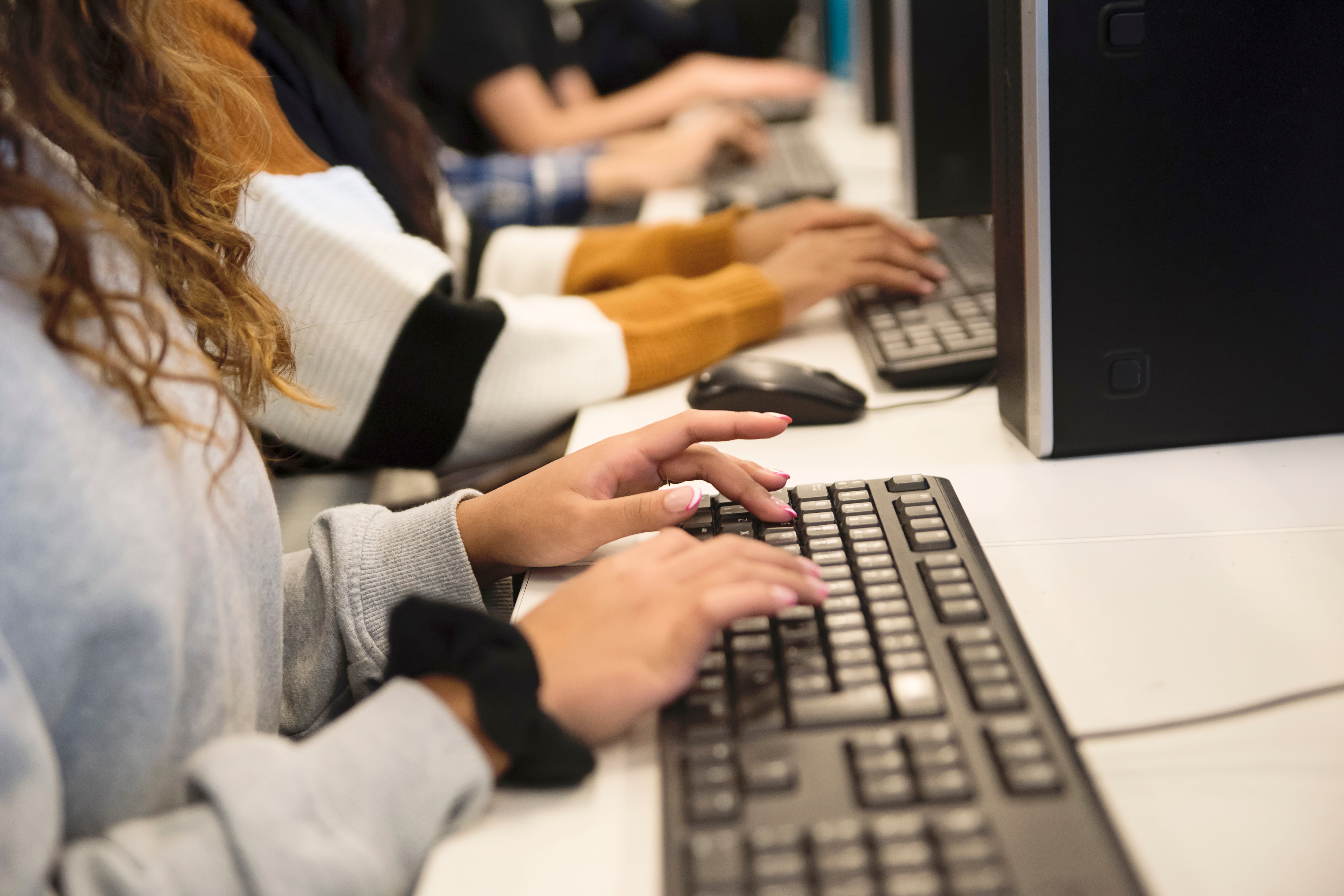Indianapolis Public Schools is expanding its virtual tutoring efforts to reach more students during the school day after some of the district’s most underperforming schools saw positive growth on the state ILEARN exam from the program.
The virtual tutoring offered by Tutored by Teachers expanded this school year from 11 of the district’s chronically underperforming elementary “Emerging Schools” to 22 out of roughly 40 traditional IPS schools.
Principals were able to opt into the program, using it to fulfill one of several needs: support for vacant classroom teaching positions in math, English, science, or social studies, SAT prep for high school students, and intervention for students at a certain achievement level, according to Tutored by Teachers.
The expansion means the district is leaning even more heavily into one of its largest efforts to recover from pandemic learning loss, with help from federal coronavirus relief funds. Roughly 2,755 students will now get tutoring during the school day, according to Tutored by Teachers, up from last year’s figure of over 1,200.
IPS is also relaunching Tutoring for All, an after-school virtual tutoring program also offered through Tutored by Teachers, which has garnered just over 2,000 students so far.
School districts around the country have turned to high-dosage tutoring to help students recover from pandemic-era learning loss, although the efforts in the country’s largest districts have only reached a small fraction of students. IPS has embraced the tutoring offered through Tutored by Teachers, which offers small-group instruction during the day by certified educators from all over the country.
This year, the tutoring offered during the day at participating schools in IPS can vary by school site, said Tutored by Teachers co-founder Rahul Kalita.
“It requires some strategic thinking and effort for the entire leadership team of a school to think through, ‘Who do we want to target?’” Kalita said.
The expansion also means some students may be getting double doses of tutoring — one session at school and another at home.
Robin Hill, who signed her fourth grade daughter up for after-school tutoring, was surprised when she learned last week that her daughter will also get tutoring during the school day at George Washington Carver Montessori School 87.
Math is her daughter’s strong suit, Hill said, but she struggles with English and struggled with reading when the pandemic hit in her earlier elementary years.
“I love it,” she said of the news of tutoring expansion. “Absolutely love it. Because she needs it.”
IPS did not respond to multiple requests for comment.
Data from Tutored by Teachers shows positive results
Data analysis from Tutored by Teachers indicates both during and after-school tutoring showed some promising academic results.
Emerging School students who participated in more than 20 hours of tutoring on average grew more on the ILEARN assessment in math and English than students who did not, according to the company’s analysis. Those students grew by about 14 more points on ILEARN in math and 12 in English.
And students who participated in more than 10 hours of after-school tutoring in the Tutoring for All program also grew more in math and English than their non-tutored counterparts from fall to spring, according to another analysis of seven of the 11 Emerging Schools.
Funding for Tutored by Teachers has been one of the district’s largest expenditures from its federal pandemic relief coffers.
The district spent roughly $4.3 million out of its roughly $217 million in federal relief dollars on Tutored by Teachers from the start of last school year through March 31, according to records of the district’s Elementary and Secondary School Emergency Relief Fund spending.
Amelia Pak-Harvey covers Indianapolis and Lawrence Township schools for Chalkbeat Indiana. Contact Amelia at apak-harvey@chalkbeat.org.






